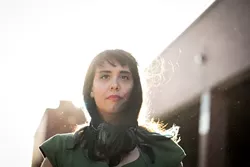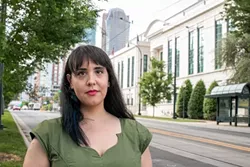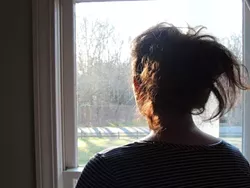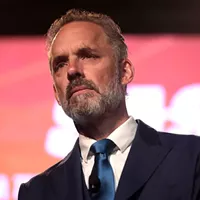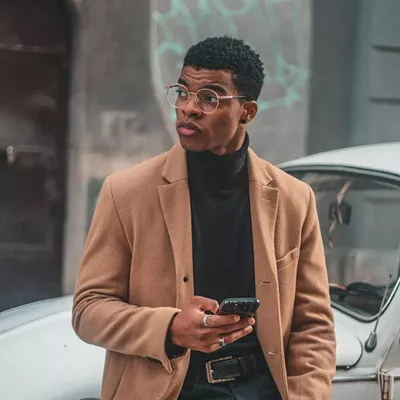Sarah Delia Talks 'She Says' Podcast and Upcoming Panel Discussion
A piece of herstory
By Ryan Pitkin @pitkin_ryanI meet Sarah Delia at the Starbucks in the Hilton Charlotte University Place, just across the parking lot from the offices of WFAE. In front of the hotel, two large PDGA flags fly, and a conference room next to the Starbucks has been converted into a mini-convention hall for disc golfers.
I mention that Charlotte is hosting the Amateur World Championships in disc golf this week, and Delia is not surprised. "We always see different conventions coming in and out of here, bringing different types of people," she says. "Last year there was a wrestling convention..." She trails off, but her facial expression tells me to use my imagination.
Delia and her team have just released the ninth episode of their WFAE podcast, She Says, in which they tell the story of Linda, a woman (whose name has been changed) who was the victim of a sexual assault in Charlotte in 2015. In the podcast, Delia continuously compares Linda's experience — and that of other sexual assault victims — to a winding road that can be hard to navigate and even harder to get off of.
When we meet, Delia is looking ahead to Thursday, August 2, when she and her team will release the podcast's season finale and host a panel discussion, Beyond She Says: Sexual Assault in Charlotte. WFAE Charlotte Talks host Mike Collins will moderate the discussion, which will feature Delia, a representative of the Charlotte-Mecklenburg Police Department and others discussing the podcast and answering crowd questions about the process that sexual assault victims must go through.
But first, we chat about Thursday's panel, what she learned in her reporting and what she hopes her audience takes away from the listening experience.
Creative Loafing: What can we expect at Thursday's panel discussion?
Sarah Delia: We're working with Charlotte Talks; [host] Mike Collins will be moderating it. I know the first part we're going to be talking a lot about the podcast and the process and things that we discovered. And I'm really glad that CMPD is also willing to be a part of it.
Have you been in contact with CMPD since the podcast started running?
We are constantly in touch with CMPD because we are fact checking so much. They have played ball with that, which is nice.
Have you discussed other aspects of the podcast with them since you started? They don't come off great in some of the episodes.
I did have a discussion with Deputy Chief Katrina Graue, who's going to be on the panel on Thursday, and her conversation probably will be in part of the last episode. She alluded to it being a learning experience for CMPD, and that's really nice to hear, that there's been some reflection. But yeah, they've been in touch with us.
It will be interesting to see. I've covered a fair amount of criminal justice things in general, and I plan to continue that coverage. I hope that this experience has only strengthened that relationship and there's a mutual respect, because I respect what they do. I told them at the beginning of this, it would be really easy to just blame the police for everything. It's more complicated than that.
You've spent more than a year with Linda, learning her story and reporting on her case, but are also still putting together episodes right up to deadline. What's that balance been like?
The way we rolled it out was we had like three and a half episodes done, but then things even changed with that. Things just come up and when you've been following someone for a year and they have an open case there are things that come up, you're like, "Let's go back and put that piece in." And you have these listener questions where you're like, "Why didn't I think of that?" That's why it's awesome that our listeners are so included in the podcast. It's like it's their podcast, too. And I want people to feel that way.
How important was that interactive aspect to you going in?
That was really important to me. Linda’s story is not everyone’s story. There are pieces of Linda’s story that I think will resonate with a lot of people, but then there are parts of her story that won’t, or it’s completely different. I can’t tell everyone’s story, but I can have you tell me your story, and we can play those back.
I remember each one that we played. The one that we played really early about the woman who was in the military and the guy that said, “You can report it but who’s going to believe you?” as he walked out the door. And the one that we put at the end, and I don’t want to ruin it for you, but we all listened to that and we were like, “Oh my God.”
I really like thinking about the podcast as an answering machine [they play listener phone messages at the end of each episode]. We’re answering questions that you have, but then at the end, there’s no bells and whistles — and by now I hope people get it, if they stay until the end, you’re going to get like a special treat, you get to hear from your listeners. It’s like sitting through the end of the movies and there’s bonus material and it’s like, “Oh, this is what I get for sitting here.” We just let them play, and we don’t say anything about them.
You did almost an entire episode about Emily, whose experience we reported on in 2017. What made you decide to go more in-depth with her story?
Yeah, so we have that in common. And I read your piece and actually reread it a bunch of times when I was doing Emily's story. I wanted to show two things with Emily's story: some things are similar, but some things are very different. The stranger thing is similar, but the circumstances around both of their assaults are very different. And I also wanted to show how the things that Emily found problematic were very different than what Linda found problematic. Everyone's sexual assault story is different.
But then, to me, on paper, Emily has always been the one that got off the winding road. She got justice; the guy admitted he did it, he's in prison right now, she got to see him be sentenced. And that's not something that Linda has gotten, and I don't know that she will get that. And so I wanted to show, this is what the system looks like when it works, and I'm using air quotes because there are still problems when it works. But I asked Emily that question at the end, I'm like, "Well to me, you're the one who got off the winding road, but are you on it or not?" and she was like, "To me, I'm in the middle of it," because it's all about her processing her trauma. So that was really interesting. And I think that you can think that you're off it, but then if you take two steps back then you're back on.
What can folks expect in the final episode on Thursday?
So basically, where we've left things off with Linda's story is she did the first step to get a no-contact order, which is really just a piece of paper. It does nothing. So we go through the first part and it's like, yeah, she got her no-contact order, that's awesome, but that's just step one. Now she has to go back, and the next time this guy is going to be served and he's going to go, and they're going to have to be in the same room as each other, and he's not in custody anymore, and it's the closest she's been to having any kind of idea of a trial.
So that's how we're going to start things off. And then later today I'm doing — not an exit interview with [Linda] because this is only the last episode for a while. So next week is the finale, but it's like the finale with an asterisk next to it. We'll be back because her story is still ongoing.
Speaking of...
-

Tune into this New Talk Show : The Madison Ward Show
Jun 17, 2020 -

CHARLOTTE, N.C. | "Life has no filter, so why should I"? – Meet Janiah Tashae
Jun 1, 2019 -
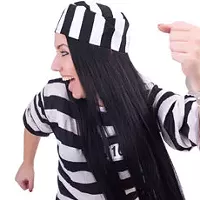
The Blotter: Inside Job
Oct 12, 2018 - More »
Latest in News Feature
More by Ryan Pitkin
-
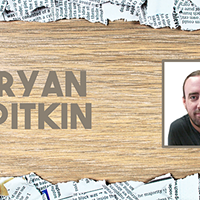
You're the Best... of Charlotte
Oct 27, 2018 -
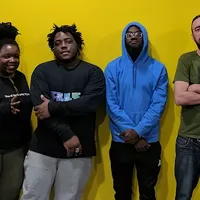
Listen Up: Cuzo Key and FLLS Go 'Universal' on 'Local Vibes'
Oct 25, 2018 -
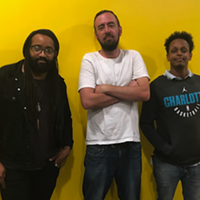
Listen Up: KANG is Back and Bla/Alt on 'Local Vibes'
Oct 18, 2018 - More »
Calendar
-

Queen City R&B Festival & Day Party @ Blush CLT
-

Half & Half! @ CATCh
-
 Cirque du Soleil: OVO @ Bojangles' Coliseum
Cirque du Soleil: OVO @ Bojangles' Coliseum -

200 Hour Yoga Teacher Training in Rishikesh India @ Arogya Yoga School
-

Sound Healing Course in Rishikesh

